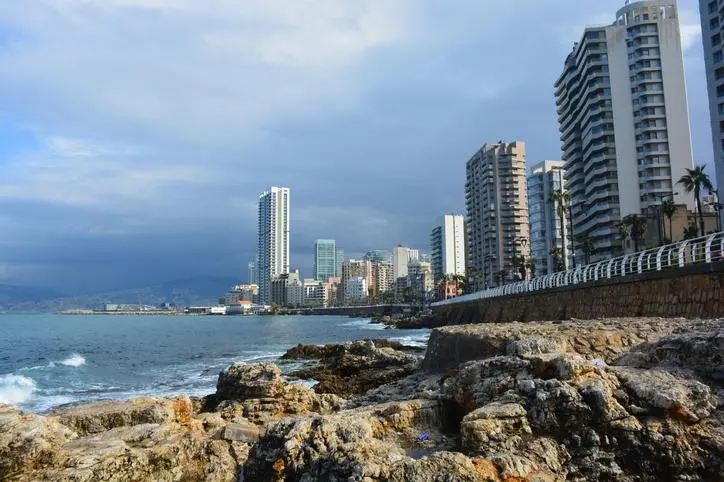PHOTO
BEIRUT: Lebanons vision for the future must look beyond a hard-line policy that seeks pure economic growth and focus on building a sustainable future, the United Nations humanitarian coordinator for the country said Thursday. It is time to act, Philippe Lazzarini said at the launch of preparations for Lebanons vision for achieving the U.N.s 2030 Sustainable Development Goals at the Grand Serail.
While Lebanon is in a time of economic uncertainty and anxiety over the future, he said, the vision must move beyond economic growth so ... it does not leave anyone behind.
In 2015, all 193 U.N. member states endorsed the 17 SDGs, which are defined as a universal call to action to end poverty, protect the planet and ensure that all people enjoy peace and prosperity.
Lazzarini made a damning evaluation of global progress in the four years since, saying, It is apparent that we are off track ... and far from where we need to be.
Turning to Lebanon, the U.N. envoy cited a number of key challenges that continue to face the country: around 30 percent of the population living below the poverty line; Beiruts air pollution levels at double the European Environment Agency guidelines; only six sitting female MPs; and a corruption ranking of 138 out of 175 countries.
There is clearly a long way to go. However, Lazzarini said there was some good news in Lebanon thanks to a number of key initiatives put in place over the last two years, including national strategies to regulate the electricity, water and health sectors and the economic vision plan put together by international consulting firm McKinsey released earlier this year.
Another important step was the Lebanons Vision for Stabilization, Growth and Employment, presented by the government at the April 2018 CEDRE conference, at which international donors pledged more than $11 billion in soft loans and grants. One and a half years later, progress on a series of reforms committed to by Lebanon at the conference is slow, and pressure from the international community is growing. We need to restore their confidence, Prime Minister Saad Hariri said at Thursdays launch, adding that Lebanon can do this by showing that the SDGs are being implemented.
Lebanon started its process toward achieving the 17 goals in earnest in 2017, when it created a national committee headed by the prime minister.
Hariri stressed that Lebanon was not making efforts to meet the SDGs for the sake of the U.N. or the international community, but for Lebanon itself.
The SDG committee is comprised of the directors-general of all of Lebanons ministries, civil society groups and representatives of the private sector, and its work is overseen by Deputy Prime Minister Ghassan Hasbani.
The national SDG vision, which is set to be implemented next year, will unite the efforts of public bodies to create an integrated strategy that will help Lebanon achieve an economic, social, environmental, health and humanitarian renaissance, Hasbani explained Thursday.
Work toward drawing up the vision is divided between four subcommittees: People, headed by the Education Ministry; Prosperity, headed by the Economy Ministry; Planet, headed by the Environment Ministry; and Peace and Institutions, headed by the Office of the Minister of State for Administrative Development. Once the strategy is drawn up, it will be referred to Cabinet for approval.
Teamwork will be key to achieving the SDGs, Hariri said.
Allowing ministries to work as if they are alone is unacceptable, he said. Any ministry that does not contribute is responsible for sending Lebanon backward.
Working together will also be crucial beyond just ministries. The government is leading the way, Lazzarini said, but everyday citizens must also be involved.
Copyright 2019, The Daily Star. All rights reserved. Provided by SyndiGate Media Inc. (Syndigate.info).





















